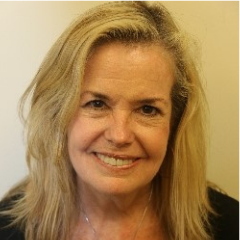Moral Distress: What It Is and How to Respond
Date and Time
May 11, 2023
12 p.m. - 3 p.m. EDT
Offered via live webinar.
Completion of this class will result in the receipt of three (3) continuing education hours.
-
The concept of moral distress refers to a clinical situation in which the patient is perceived to be “suffering” and the clinician knows what they feel to be the best course of action, but that course conflicts with what is best for the organization, other providers, other patients, the family, or society as a whole. Moral distress can occur when the professional feels a sense of heightened moral responsibility and also a perception of powerlessness.
While moral distress was first recognized among nurses, we now know that moral distress affects physicians, pharmacists, social workers, chaplains, psychologists and other health care providers. This class covers the experience of moral distress, impact on clinicians of multiple disciplines and the specific impact of moral distress among palliative care teams. Special attention will be given to the impact of the pandemic on moral distress. Strategies for recognizing and dealing with the experience of moral distress on individuals, teams, and within health systems will be considered.
LEARNING OBJECTIVES
Social workers who have taken this course will be able to:
- Describe the features of moral distress and the impact on professional caregivers
- Recognize the intersection of the internal environment of the professional (values perceived obligations), with ethical problems and potential differences of priorities among other professionals or the institution.
- Identify clinical situations that can lead to moral distress
- Identify the contributing factors that create moral distress
- Describe strategies for mitigating moral distress within one’s self, the health care team, and the institution.
-

Susan Hedlund, LCSW, OSW-C, FAOSW
Susan Hedlund has been a social worker in the health care field for more than thirty years and has extensive experience working with individuals and families facing life threatening illness and loss. She is currently the Director of Patient and Family Services at the Knight Cancer Institute at Oregon Health & Sciences University, in Portland, Oregon. She was previously the Director of Social Services and Palliative Care for Hospice and Palliative Care of Washington County in Portland, Oregon, and is an associate professor at the School of Medicine at Oregon Health & Sciences University, as well as the Graduate School of Social Work at Portland State University. She teaches in the Graduate Certificate Program in Palliative Care at the University of Washington.
She is a past president of the National Association of Oncology Social Work, and received their Leadership Award in 1999, and the National American Cancer Society Quality of Life Award in 2009. She was a 2013 recipient of Sojourn’s Award from the Cambia Foundation acknowledging innovations in palliative care. She publishes on topics related to coping with illness, end-of-life issues, and loss, most recently in the Oxford Textbook of Palliative Social Work and the Handbook of Oncology Social Work. She works with professional caregivers on promoting resilience and attending to grief, burnout, and compassion fatigue. She is the mental health provider on Oregon’s Disaster Medical Assistance team.
-
Our regular fees are listed below:
- Full Tuition - $90
- GSS Alumni - $75
- Current Field Instructor - $75
- Current Adjunct Faculty - $75
- SWHPN Member - $75
- 3+ members registering from one agency - $60 per registration
- Non-Fordham Current MSW or Social Work PhD Student - $60
- Veterans - $60
- Fordham Faculty and Staff - $60
- Current Fordham MSW or PhD Student - $45
- Fordham Alumni Palliative Care Fellow - $45
- Current Fordham Palliative Care Fellowship Field Instructor/Career Mentor - $45
- Current Fordham Palliative Care Fellow or Montefiore Fellow - $0
Continuing Education Hours
Fordham University Graduate School of Social Service is a provider of social work continuing education hours, as approved by the New York State Education Department Board for Social Work.
Completion of this class will result in the receipt of three (3) continuing education hours. CEHs are not awarded for partial completion of the class. -
You will receive the Zoom link for joining the class a few days before the class. You will need a computer and a reliable WiFi connection. The computer may be a desktop or a laptop. It may be an Apple or Windows computer.
If you have never used Zoom before, you will likely be prompted to download an applet, which is a small program that allows Zoom to communicate with your computer. This is safe and you will need to do this to join the class.
It is NOT advised that you participate using a table (e.g,.an iPad) or a cellular phone. The software is not optimized for these devices.
Please plan to join the online class 15 minutes before the start time to be sure that you don’t have any problems connecting. We cannot provide technical support to you and refunds won’t be offered if you have technical problems. If you have any questions or concerns about this, please contact us at [email protected] at least a few days before the class.